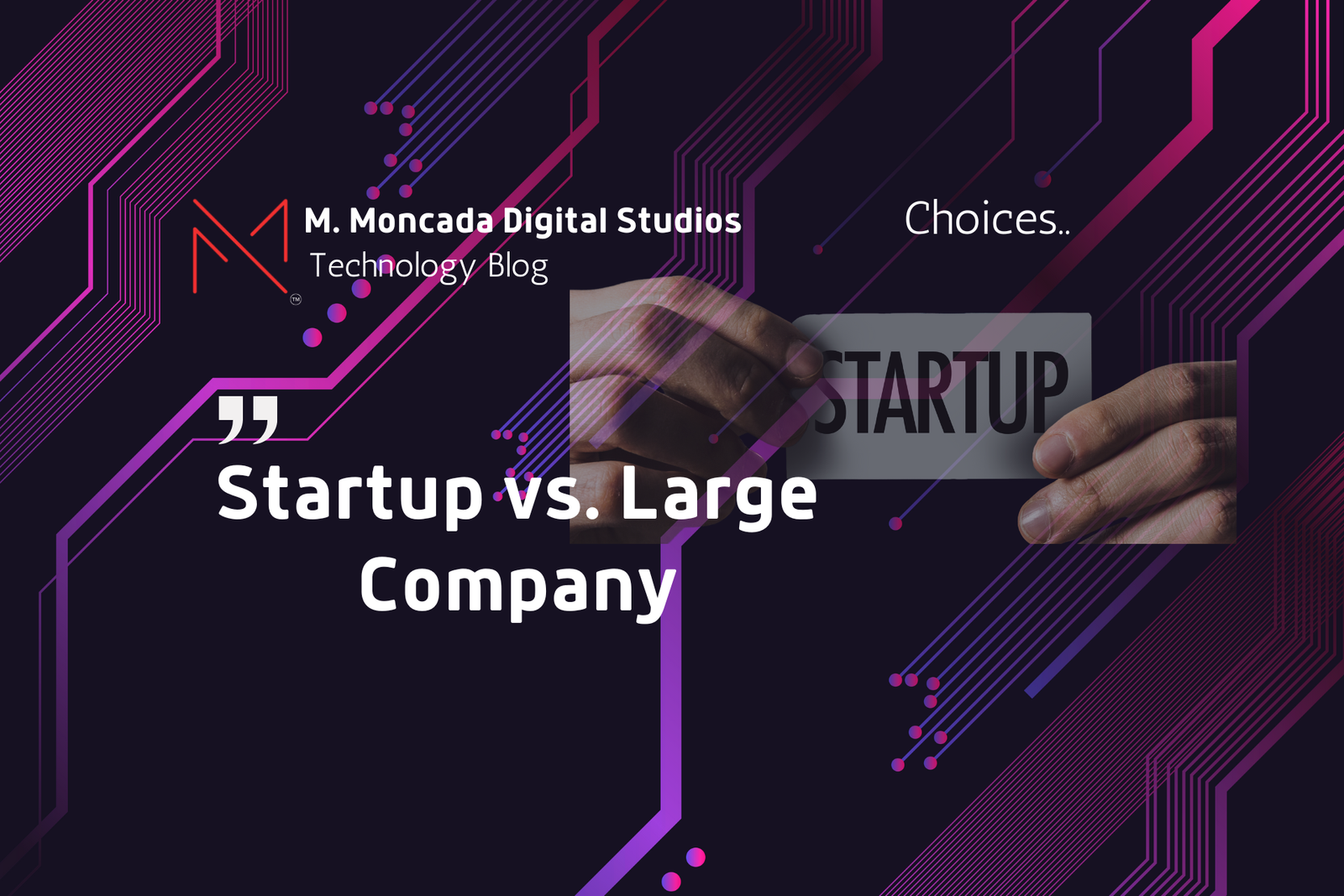
Choosing a Company To Work For: Startup vs. Established?
November 29, 2024
One of the most important decisions you’ll make as a developer is choosing the type of company to work for. Should you join a startup for its fast-paced environment and flexibility? Or should you aim for a large, established company with more stability and benefits? Each option has its pros and cons, and understanding these can help you align your career goals with the right environment.
This guide explores the differences between startups, mid-size companies, and large corporations, so you can make an informed decision.
Startups: Creativity, Flexibility, and Learning Opportunities
Startups are often associated with innovation and a chance to wear many hats. Having worked at several startups in my career, I can confidently say the experience can be incredibly rewarding—but it’s not without its challenges.
Pros of Working at a Startup:
- Close Collaboration: You’ll work directly with founders and senior leaders, gaining insights into entrepreneurship.
- Diverse Responsibilities: Smaller teams mean you’ll take on multiple roles, from coding to client interaction.
- Flexibility: Startups are more likely to accommodate non-traditional qualifications, such as coding bootcamp graduates or self-taught developers.
- Varied Experience: You’ll work on projects for a range of industries, such as e-commerce, real estate, or marketing.
Cons of Working at a Startup:
- Lower Salaries: Startups often have limited budgets, which means pay may be lower, especially for junior roles.
- High Risk: Startups can be unstable; many fail within the first few years.
- Lack of Structure: Processes and workflows may be less defined, which can be overwhelming for beginners.
Pro Tip:
If you’re a senior developer, startups can offer competitive salaries—sometimes upwards of $250,000—and even equity if you join early. Startups are also a great place to grow your skills quickly and gain entrepreneurial experience.
Mid-Size Companies: Balance Between Startups and Corporations
Mid-size companies offer the best of both worlds. They often retain the innovative spirit of a startup but have more resources and structure in place.
Pros of Working at a Mid-Size Company:
- Defined Roles: Job responsibilities are clearer, and teams are larger, which can mean less stress compared to a startup.
- Team Collaboration: You’ll work alongside other developers, often with opportunities for code reviews and collaborative problem-solving.
- More Clients: These companies often work with established local brands, giving you a chance to contribute to projects you can see in your community.
Cons of Working at a Mid-Size Company:
- Less Client Interaction: Unlike startups, you may not interact directly with clients.
- Corporate Feel: Processes may feel more rigid compared to the laid-back environment of smaller companies.
Pro Tip:
Mid-size companies are a good fit for those who want the structure of a larger company without losing the chance to work on exciting, varied projects.
Large Established Companies: Stability and Prestige
Working for large companies like Amazon, Google, or Lockheed Martin offers significant perks, but these roles come with their own challenges.
Pros of Working at a Large Company:
- Job Security: Big companies have the resources to weather market fluctuations.
- High Salaries: Starting salaries for new graduates often exceed six figures.
- Defined Career Paths: These roles are highly specialized, allowing you to master a specific skill set.
- Prestige: Having a well-known company on your resume demonstrates competence and credibility.
Cons of Working at a Large Company:
- Lack of Variety: You’ll likely be locked into a specific tech stack or role, such as front-end or back-end development.
- Corporate Environment: Expect formal processes, strict deadlines, and less flexibility compared to smaller companies.
- Degree Requirements: These companies typically require bachelor’s degrees in computer science or related fields, making it harder for self-taught developers to break in.
Pro Tip:
Large companies are ideal if you value stability, high pay, and opportunities for long-term career growth. However, you may miss out on the entrepreneurial spirit and flexibility of smaller companies.
Category:
Industry
